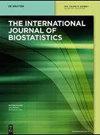空间分层传染病系统推理的集合学习方法
IF 1.2
4区 数学
Q4 MATHEMATICAL & COMPUTATIONAL BIOLOGY
引用次数: 0
摘要
个体水平模型是一类广泛用于推断传染病传播动态的机理模型。这些模型结合了个体水平的协变量信息,考虑了种群的异质性,通常在贝叶斯马尔科夫链蒙特卡罗(MCMC)框架内进行拟合。然而,对于大型数据集来说,贝叶斯 MCMC 推理方法的计算成本很高。当应用于从空间异质性人群中收集的传染病数据时,随着协变量数量的增加,这一问题变得更加严重。此外,全球人口的汇总统计可能无法捕捉到疾病传播的真实时空动态。在本研究中,我们建议使用集合学习方法来预测流行病生成模型,而不是耗时的贝叶斯 MCMC 方法。我们将这些方法应用于推断空间聚类人群的疾病传播动态,将聚类视为自然分层而非总体人群。我们比较了两种基于树的集合学习技术:随机森林和梯度提升的性能。这些方法被应用于 2001 年英国口蹄疫疫情,并使用聚类种群的模拟数据进行了评估。结果表明,与全局数据相比,空间聚类数据有助于更准确地预测流行病生成模型。本文章由计算机程序翻译,如有差异,请以英文原文为准。
Ensemble learning methods of inference for spatially stratified infectious disease systems
Individual level models are a class of mechanistic models that are widely used to infer infectious disease transmission dynamics. These models incorporate individual level covariate information accounting for population heterogeneity and are generally fitted in a Bayesian Markov chain Monte Carlo (MCMC) framework. However, Bayesian MCMC methods of inference are computationally expensive for large data sets. This issue becomes more severe when applied to infectious disease data collected from spatially heterogeneous populations, as the number of covariates increases. In addition, summary statistics over the global population may not capture the true spatio-temporal dynamics of disease transmission. In this study we propose to use ensemble learning methods to predict epidemic generating models instead of time consuming Bayesian MCMC method. We apply these methods to infer disease transmission dynamics over spatially clustered populations, considering the clusters as natural strata instead of a global population. We compare the performance of two tree-based ensemble learning techniques: random forest and gradient boosting. These methods are applied to the 2001 foot-and-mouth disease epidemic in the U.K. and evaluated using simulated data from a clustered population. It is shown that the spatially clustered data can help to predict epidemic generating models more accurately than the global data.
求助全文
通过发布文献求助,成功后即可免费获取论文全文。
去求助
来源期刊

International Journal of Biostatistics
MATHEMATICAL & COMPUTATIONAL BIOLOGY-STATISTICS & PROBABILITY
CiteScore
2.10
自引率
8.30%
发文量
28
审稿时长
>12 weeks
期刊介绍:
The International Journal of Biostatistics (IJB) seeks to publish new biostatistical models and methods, new statistical theory, as well as original applications of statistical methods, for important practical problems arising from the biological, medical, public health, and agricultural sciences with an emphasis on semiparametric methods. Given many alternatives to publish exist within biostatistics, IJB offers a place to publish for research in biostatistics focusing on modern methods, often based on machine-learning and other data-adaptive methodologies, as well as providing a unique reading experience that compels the author to be explicit about the statistical inference problem addressed by the paper. IJB is intended that the journal cover the entire range of biostatistics, from theoretical advances to relevant and sensible translations of a practical problem into a statistical framework. Electronic publication also allows for data and software code to be appended, and opens the door for reproducible research allowing readers to easily replicate analyses described in a paper. Both original research and review articles will be warmly received, as will articles applying sound statistical methods to practical problems.
 求助内容:
求助内容: 应助结果提醒方式:
应助结果提醒方式:


